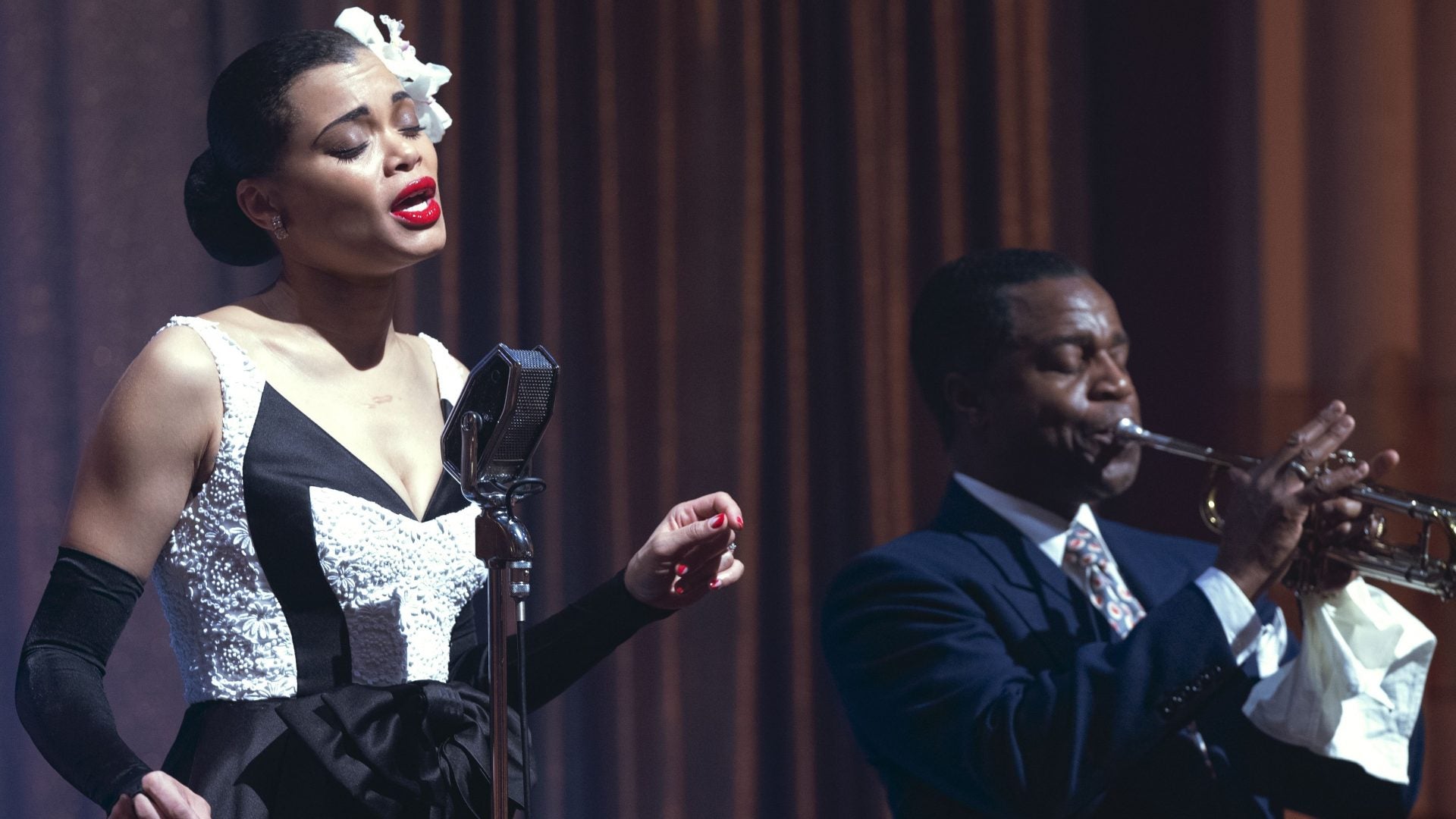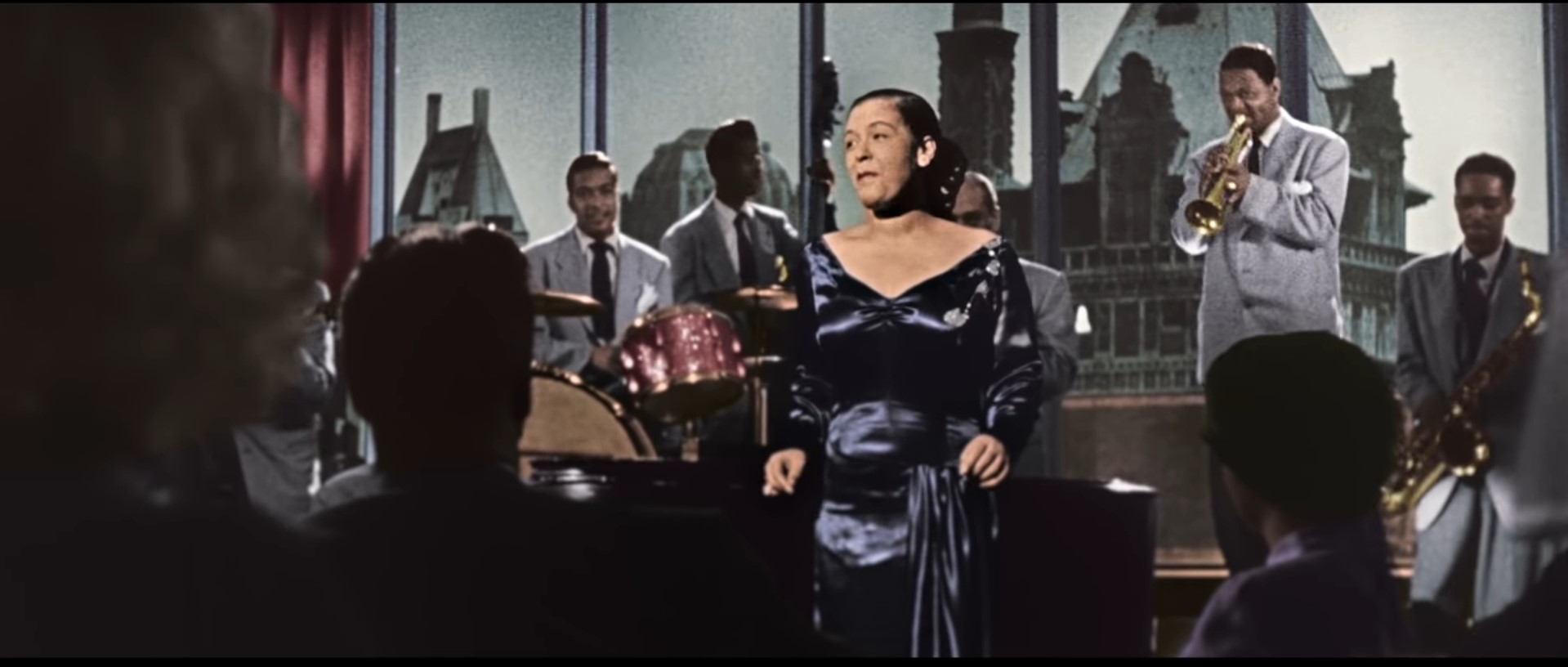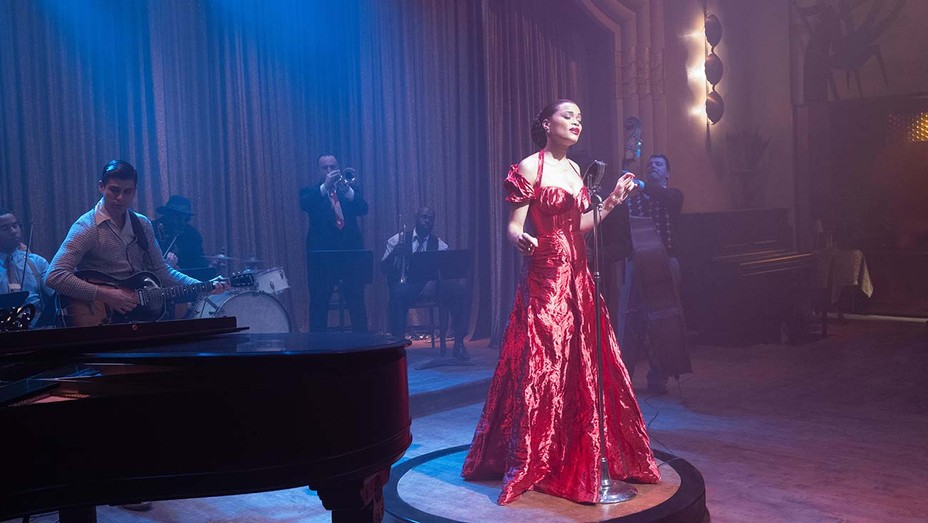In her 44 years of existence, Billie Holiday gifted the world her beautiful voice and a message that has inspired generations. Directed by Lee Daniels, ‘The United States vs. Billie Holiday’ is a drama film based on a section of the book by Johann Hari called ‘Chasing the Scream: The First and Last Days of the War on Drugs.’ The film, set in the 1940s, follows Billie Holiday (Andra Day) as the government targets her for the controversial song “Strange Fruit,” which talks about the lynching of Black Americans.
To get her to stop performing the song, the Federal Bureau of Narcotics (FBN) carry out an undercover sting operation led by Jimmy Fletcher (Trevante Rhodes) and make repeated arrests to destroy her public image. If you are wondering whether the film is based on real-life instances, you might find it interesting to learn what we know!
Is The United States vs. Billie Holiday Based on a True Story?
Yes, ‘The United States vs. Billie Holiday’ is based on a true story. The film follows one of the most defining parts of Billie Holiday’s life and career. Daniels sees Holiday as one of the people who kickstarted the Civil Rights Movement, although not many people are aware of her contribution. The film particularly focuses on her 1939 song, “Strange Fruit,” and the roaring response it got from people. However, it made her a target in the eyes of the FBN, who hounded her for more than 20 years.

The sting operation was led by Jimmy Fletcher, a black Federal Agent acting on the orders of the head of FBN, Harry J. Anslinger. It was a well-known fact that Anslinger often made racist remarks, and the case with Billie Holiday seemed to be about more than just drug use. According to Johann Hari, Fletcher was hired to follow Holiday around and document her drug use so that she could be indicted for it.
Hari also stated that Fletcher had no sympathy for people with addiction but ended up falling in love with Holiday. Billie Holiday was arrested one last time for illegal possession of narcotics towards the end of her life while she was bedridden at the Metropolitan Hospital in New York. She breathed her last on July 17, 1959, as she succumbed to her lung and heart conditions that resulted from liver cirrhosis. However, she left a rich legacy behind.
Speaking of legacy, “Strange Fruit” has an interesting story behind it. Billie Holiday was first introduced to the lyrics in the late 30s. It is originally a poem written by a Jewish schoolteacher Abel Meeropol under the pseudonym “Lewis Allan.” The owner of Café Society, Barney Josephson, came across the song and shared it with Billie Holiday. Since Holiday’s father passed away of a lung disorder because he was refused treatment due to racial prejudice, the song came to mean a lot to her for this reason.
She was especially driven because the things that killed him were “still happening.” When Holiday performed the song at Café Society, she ensured that there was complete silence in the crowd. The lights were dimmed, and as Holiday began to sing, only a spotlight highlighted her face. As soon as the song ended, the light went out, and she was gone. The song was finally recorded with Commodore Records in 1939 and was re-recorded by Verve; Columbia turned it down for its sensitive subject matter.

Over the years, “Strange Fruit” became a famous protest song. Interestingly, it had been performed by Meeropol and his wife Laura Duncan at various venues before Holiday’s version took the world by storm. Keeping all this in mind, Lee Daniels felt that the film was not just a biopic honoring Billie Holiday, but it is also the need of the hour. After all, the film was shot in 2019, a year before the killings of Ahmaud Arbery, Breonna Taylor, and George Floyd.
These incidents shook up the world, and Daniels found that the film became all the more timely and relevant as the “21st-century version” of what Holiday sang about. In an interview, he also referred to the failure of passing the Emmett Till Antilynching Act in February 2019, which would classify lynching as a hate crime. Through this film, he hopes to begin a much-needed conversation in society and compel people in positions of authority to take action.
Read More: Where Was The United States vs. Billie Holiday Filmed?


You must be logged in to post a comment.